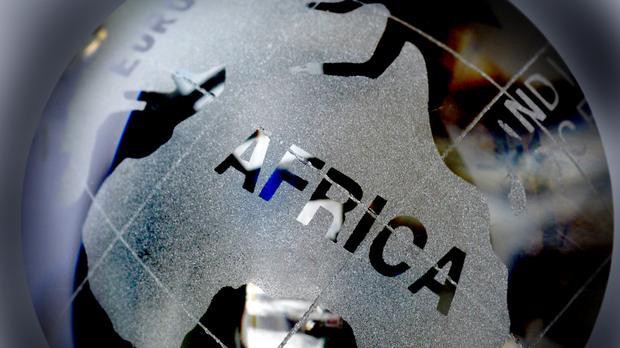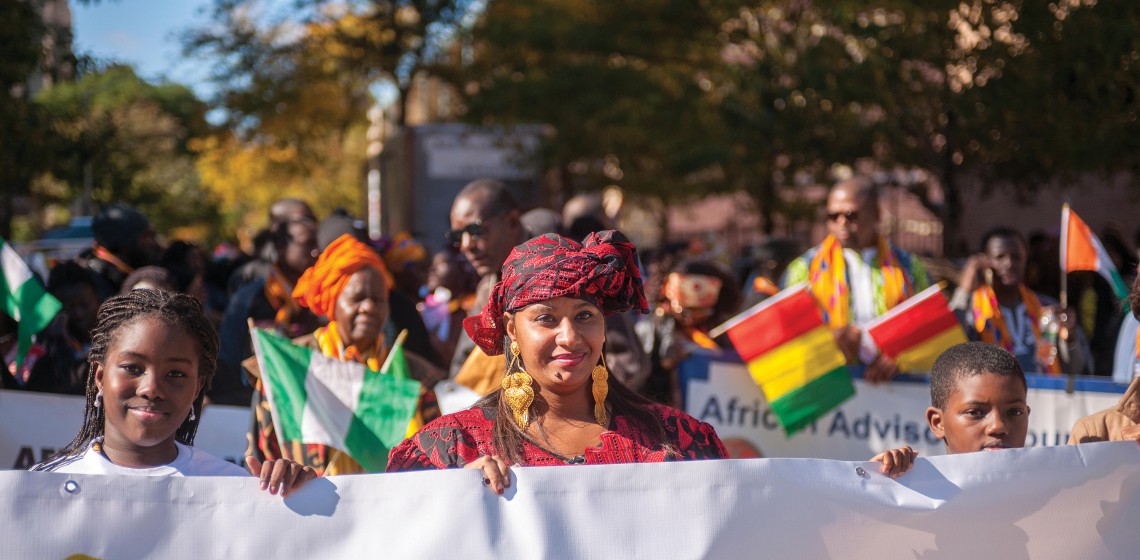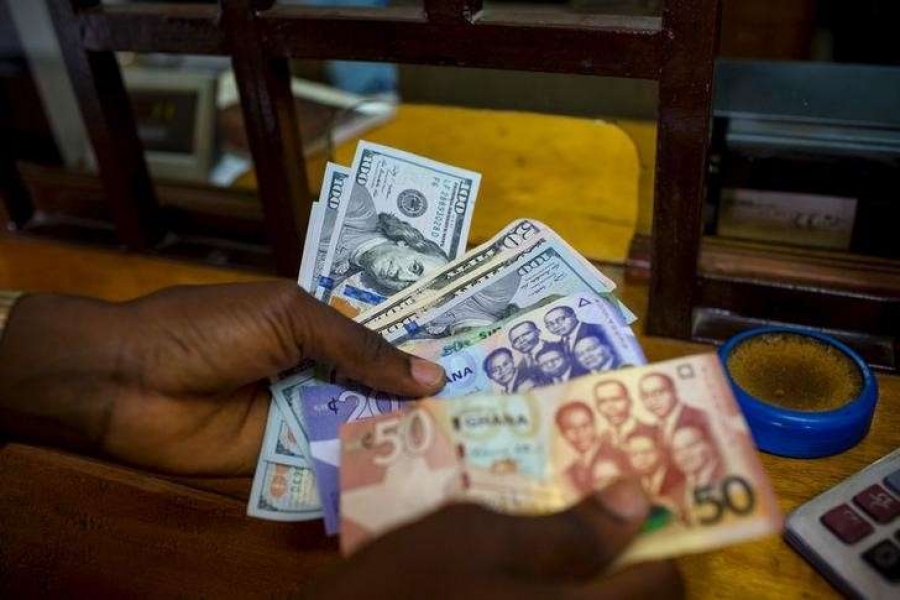Remittances are NOT Diaspora Investment by Guest Writer
March 10, 2020 africa / Business / Development / Diaspora / entrepreneurship / Fintech / Infrastructure / innovation / investment / leadership / Money / Mpesa / remittances / SDG / Sustainable Development / technology / USA

My favorite Diaspora definition is the one by G. Scheffer: “Modern Diasporas are ethnic minority groups of migrant origins residing and acting in host countries but maintaining strong sentimental and material links with their countries of origin—their homelands.” The term Diaspora comes from the Greek words “to sow” and “over”, as in the scattering of seed, and for them it meant the “seeding” of Greek colonies in distant lands.
Remittances are funds sent by immigrants to their home countries for various uses including paying school fees for relative, covering healthcare costs for family as well as activities such as building homes to retire. The major driving forces include insurance, investment and strategic incentives. A report titled, “Leveraging Economic Migration for Development” noted that in 2018, the number of international migrants and refugees was estimated to be 266 million persons, of whom 240 million (90%) were economic migrants. The same report highlighted that women made up the majority of the numbers with the exception of Africa and Asia. Between the years 2000 and 2018 the share of immigrants as a percent of the global population increased from 2.8% to 3.5%. The 2019 report isn’t available as of this article, but according to the World Economic Forum the 2019 global remittances are projected to be a remarkable $715Billion. The 2019 projections have the following countries leading: India ($82.2B), China ($70.3B), Mexico ($38.7B), the Philippines ($35.1B), and Egypt ($26.4B).
The Africa Diaspora Context
I posit that the remittances discussion especially in the Africa context is often misconstrued. We place almost exclusive emphasis on the flow of money from Europe and the Americas into Africa. Global reports rarely speak to the amount of funds Tanzanians in Kenya send home or that Malawians in Ethiopia send back to Malawi. As a matter of fact, about two out of every three migrants from Sub-Sahara Africa go to neighboring countries. Surprisingly, only 41 percent of emigrants from East Africa, 24 percent from West Africa, 39 percent from Central Africa, and 28 percent from Southern Africa end up outside Africa. If we consider the intra-continental flow, remittances in Africa hit the $85Billion mark in 2018. If the African Diaspora was country, we would be the 9th largest economy on the continent just behind Ethiopia with a GDP of $90.97 billion.
The 2018 remittances were more than foreign direct investment in the same year ($46B). Quartz Africa reported that Nigeria’s 2017 revenue from oil was $20B while the remittances in the same year were $22B. A more interesting observation is that remittances are more stable than all other sources of foreign exchange. Some economists have theorized that remittances can improve nations creditworthiness. Additionally, they spur spending in sectors such as education and healthcare. Recent findings have shown that Ethiopian households that received remittances are less likely to sell off productive assets such as livestock amidst hardships such as famine. With overwhelming dependence on foreign aid, it’s perhaps time for the African governments to turn to the Diaspora for economic development.
Removing the remittances bottlenecks
“High transaction fees are cutting into remittances, which are a lifeline for millions of Africans,” said Gaiv Tata, the World Bank’s director for finance and private sector for Africa. To that end, the most pressing issue with remittances today is the exorbitant cost of sending money. The global average of remitting $200 is about 7%, Asia boasts of the lowest average of 5%. Meanwhile, for Sub-Sahara Africa is as high as 9.4%. This is typically owed to the fees on the sender and recipient intermediaries as well as the exchange rate margins. In 2017 the total cost of sending remittances was about $30Billion. To put this in perspective, the requested foreign assistance funds by the USA for 2020 is $32.3B. This cost of sending money can build the Mombasa-Nairobi railway (cost $3.2B) about ten times over. Sustainable Development Goal (SDG) 10.7 has a target of 3% by 2030. 
Now, what causes sending money to Africa to be so expensive?
One reason for such high costs is the limited market competition for cross-border payments. Massimo Cirasino, a senior World Bank economist suggested that opening up the remittance market to competition and better information to consumers could bring remittance prices down, says
Governments in both sending and receiving countries (in Africa and elsewhere) should discourage exclusive agreements between providers of remittance services (such as commercial banks, post offices, credit and savings cooperatives, microfinance institutions, and mobile money transfer services) and international money transfer agencies, which keep costs high. As a matter of fact, a recent survey showed that 81% of post offices in Sub-Sahara Africa are located outside three of the largest cities. It’s these locations where 80% of Africans reside. On the contrary, mainstream commercial banks tend to be concentrated primarily in the bigger cities.
A World Bank report “Leveraging Migration for Africa-Remittances Skills, and Investments” noted that providing information on available remittance channels, maintaining databases of the prices charged, and promoting the financial literacy of prospective migrants can strengthen competition in the market. Over the long term, financial development should reduce remittance costs by increasing access to financial services in rural areas and poor communities and reducing the costs of opening bank accounts.
There is also a loss through converting currencies, not to mention fees and time spent waiting for transfer approvals. Another World Bank study found that fees average 7.09 percent of the amount sent. One of the proposed solutions is the use of bitcoin to these transactions, Blockchain platforms are able to reduce fees and transfer money. A 5% reduction can add $16 billion a year back in the continents’ economy.
Additionally, governments can support this process by improving their telecommunications infrastructure; harmonizing banking and telecommunications regulations to enable mainstream African banks to participate in mobile money transfers; and—to the extent consistent with public safety—simplifying anti-money laundering and combating the financing of terrorism (AML-CFT) regulations for small-value transfers, which would facilitate mobile-to-mobile cross-border transactions. Prior to the activation of the AML-CFT it was estimated that $2 to $4 trillion dollars was used to finance illicit activities. While, this slowed down the funding of illicit activities, it also presents a bottleneck in the remittances process.
In a nutshell, Governments and policy makers should encourage competition and fully exploit the potential of the domestic remittance market. Examples of this include the African Development Bank working with African governments to introduce policies and measures that will attract remittance flows, and the launch in January 2019 of PRIME (Platform for Remittances, Investments and Migrants’ Entrepreneurship in Africa). The aim of PRIME is to reduce the cost of remittances and increase their impact across Africa.
Calling Remittances Diaspora Investment In countries of Origin is a misnomer
For far too long African Diaspora have purported that remittances to their countries of origin is a form of investment and demand special recognition to that end. Truth is that most remittances are sent directly to family for private and personal use. Yes, local governments might experience peripheral gains from a Burundian sending money to treat his mother. But if his mother was in Bolivia, that is where the funds would actually be remitted, so the act of sending money isn’t a patriotic one, rather a personal one. Yes, a Kenyan in Dallas is building a house in his homeland to use when he retires, so does the local Kenyan in Nyahururu. These acts have been misrepresented as investments for far too long.
Diaspora Public Partnerships (DPP)
Now, let’s examine some deliberate acts that would pass the patriotic test. In April 1998, India conducted underground nuclear tests known as the Pokhran-II test. As a result, in May of 1998 the US issued sanctions on India. Shortly after the sanctions were imposed the Indian government turned to the Indian Diaspora as a source of funding by launching a sale of 5-year bond guaranteed by the State Bank of India. This bond dubbed as the “Resurgent India Bond” was set up to counter the impact of the sanctions impressed upon India. Furthermore, this bond was made more attractive by setting the interest at 2 percent higher than the US bond market. India launched an aggressive marketing campaign for the bonds in the US and Europe leading to $3 Billion dollars in just two weeks. This unprecedented fit was evidence enough that the Diaspora can serve as a viable alternative source of funding to native countries. $22 Billion, almost half of the Sub-Saharan African remittances go to Nigeria. Pose for a moment and imagine if just 10% of the remittances were converted into investments relieving the Nigerian government from foreign aide with endless strings attached. The 340KM standard gauge railroad in Ghana will cost $2.2 billion which is 10% of the Nigerian remittances for the year. In other words, Nigerians in Diaspora can fund the Ghanaian standard gauge railroad in a matter of months.
 What is a Diaspora Bond anyway? A country simply issues foreign currency debt targeting the Diaspora. The intended outcome here is the country benefitting from a patriotic dividend that offers lower pricing. Given the India example we see how such funding instruments are crisis resilient. On the Diaspora side, this is an opportunity to contribute to the nation’s development. Governments can potentially enhance access to international capital markets by issuing bonds securitized by future remittance inflows. Some scholars believe that Diaspora bonds can actually improve a country’s sovereign credit rating.
What is a Diaspora Bond anyway? A country simply issues foreign currency debt targeting the Diaspora. The intended outcome here is the country benefitting from a patriotic dividend that offers lower pricing. Given the India example we see how such funding instruments are crisis resilient. On the Diaspora side, this is an opportunity to contribute to the nation’s development. Governments can potentially enhance access to international capital markets by issuing bonds securitized by future remittance inflows. Some scholars believe that Diaspora bonds can actually improve a country’s sovereign credit rating.
A Creative Diaspora Investment Platform- Accounts Receivables and Purchasing Orders
What is an account receivable? Accounts receivable (AR) is the balance of money due to a firm for goods or services delivered or used but not yet paid for by customers. Accounts receivables are listed on the balance sheet as a current asset. AR is any amount of money owed by customers for purchases made on credit. Most common lengths of time to pay the accounts receivable is between net 30 and net 60. Imagine, John Doe delivered $1,000 worth of eggs to Hyatt Regency Hotel in Addis Ababa. Now, imagine this transaction is visible and part of a Diaspora Investment Platform. On this online platform you have four key elements. Each component of is heavily vetted prior to admission to the platform.
1. Diaspora (investor)
2. Small enterprise (the egg vendor). Typically, too small to qualify for bank loans. This comprises the majority of today’s entrepreneurs and business owners on the continent.
3. Buyer: In this example it is Hyatt Regency in Addis-Ababa
4. Local Bank in this case Awash Bank: The role of the bank of to guarantee the transaction
Now, John Doe has delivered the $1,000 worth of eggs to Hyatt Regency Hotel and is waiting for 30 to 60 days to be paid. One of the major issues of small business owners is access to capital for day to day running and/or expansion. This transaction will be visible all members of the platform as outlined above. Instead of John Doe waiting for up to 60 days for the $1,000 he now has an option to get $900 from a Diaspora investor within 24 to 48 hours at a cost of 10%. What this does is allows John Doe to quickly access capital to prepare (purchase feed, medicine, and other infrastructure needed to produce the set of eggs for delivery well under the normal time). This means that by the time the 60 days come around, John Doe would have already possibly been ready for his second supply instead of only now receiving his money to start the process again.
The Diaspora having bought this debt will instead be the one to be paid the $1,000 by the Hyatt Regency in 60 days. There are very few (if any) investments that would pay you 10% in 60 days today. Conversely, the $1,000 range is where the majority of African Diaspora fall. The role of Awash Bank is simply an insurance one. Awash Bank will take 2% of the transaction from the Diaspora. This assures the Diaspora that if Hyatt Regency doesn’t pay in 60-day, Awash Bank will remit those funds to the Diaspora and legally pursue the funds from Hyatt Regency Hotel. This simple tool has brought in more Diaspora into the investment space of their countries of origin. Small business owners have also found a low risk source of capital where banks wouldn’t consider and at a lower rate than the going interest rates for African Banks today. This win-win investment mindset and at that scale is what we as African Diaspora in partnership with local entities should be exploring.
A similar thought process can be applied to purchasing orders. Purchase orders (POs) are documents sent from you, as the buyer, to a supplier with a request for products or services as an order. Each PO will include a number for tracking the purchase order throughout the system, as well as the type of item, quantity, and agreed upon price. Given that the PO represents a promise and not a transaction that has already taken place, it implies a higher risk. To this end, the investment in PO’s will have a higher return (30% to 40%).
The Africa Brain Gain
There are more Ethiopian doctors in Chicago than in the whole of Ethiopia. Since the year 2000 out of 85 American Nobel prize winners (in either physics, chemistry or medicine), 33 have been immigrants. African diaspora have been winning Nobel prizes since Albert Camus in 1957 to Claude Simon in 1985 and Claude Cohen-Tannoudji (Physics in 1997). Examples of Diaspora contributions in their countries of residence are replete. Some common ones include the son of Abdul Fattah Jandali (a Syrian refugee), Steve Jobs who revolutionized the computer world. Valued at $115 billion, this son of a Cuban immigrant (Jeff Bezos) is the richest man in the world. Even more fascinating is the fact that 43% of the fortune 500 companies today were either founded my immigrants or their children. This trends dates as far back as the founding 1875 when todays largest telecom company (AT&T) was founded by a Scottish immigrant (Alexander Graham Bell). In 1994 a British immigrant Nigel Morris started Capital One. Sergey Brin the co-founder of Google is a Russian immigrant. Elon Must is perhaps the most famous African Diaspora. This son of Pretoria, South Africa Elon Musk is better known as the Tesla founder is also the founder of PayPal, Space X and many other highly innovative companies. Philip Emeagwali, a son of Akure Nigerian won the Gordon Bell Prize (considered as the Nobel Prize of computing) for his contribution to what we know as the internet today.
It’s evident that over the years that Diaspora have contributed in every aspect in their countries of residency. With a few exceptions such as Israel many countries have struggled to attract their Diaspora and to also use them as conduits for transfer of knowledge. In July of 1950 Israel passed the Law of Return. This law gives Jews the right to return and gain Israel citizenship. In 1970 the same privileges were extended to people with one Jewish grandparent and a person who is married to a Jew.
In the coming Senegalese parliament 10% of the parliamentarians will be members of the Diaspora. Most Diaspora do return home upon retirement and almost always demand to be buried home. Additionally, most of the family members of the Diaspora are in their country of origin. This makes their input in national matters and participation in local politics equally paramount.
Senegalese to vote for ‘expat MPs’
Senegal MPs vote to allow expatriates to run for office, expanding the size of the national assembly.
Most African government have sat back waiting for Diaspora to make a case why the top entrepreneurs, scientists, dons in developing should be allowed to continue being part of the fabric of their country of origin. It’s time these governments wake up and proactively incentivize these talented individuals to return. I am of the view that African governments should set aside budget to lure Diaspora back home or at least to maintain ties. I would set aside a fund under the ministry of foreign affairs that would facilitate expert diaspora’s visit. Kwatsi Alibaruho (Ugandan) is a flight director at National Aeronautics and Space Administration (NASA). He is the first black flight director at NASA. Uganda should have a program that pays for his annual vacation to Uganda along with a minimum stipend. In exchange Kwatsi will dedicate time during his visit to lecture at Makerere and carrying out various workshops and consultations. Same can be applied to Bisi Ezerioha, an engineer and former pharmaceutical executive who has built some of world’s most powerful Honda and Porsche engines. The list is endless. It’s similar initiatives that will strengthen the bond between Diaspora and their countries of origin.
Conclusively, I stress the strength of Diaspora because it is essential to the development of the continent. Technology and infrastructure has made the globe virtually borderless. Today if America sneezes, Tanzania might catch a cold. African governments can no longer focus on geographical distance in the case of the Diaspora meanwhile losing sight of the forest for the trees. There is not a better partner for economic and technological development today for Africa than her own Diaspora. It’s time to cut ties with old mindsets and wholeheartedly embrace her sons and daughters and work together as partners. However fixed African government’s mindset may seem, the tide of time and events will bring surprising positive changes in the relations between nations and her Diaspora. It’s inevitable. It is now time for Africa to unleash her developmental secret weapon, her Diaspora.
By our Guest Writer

